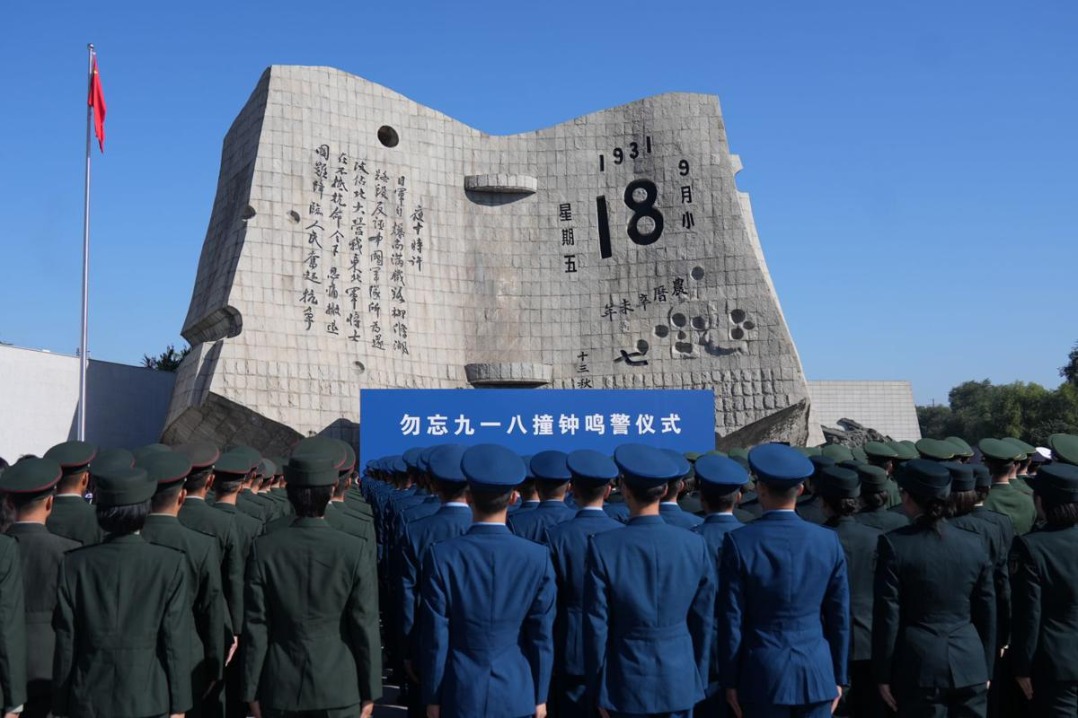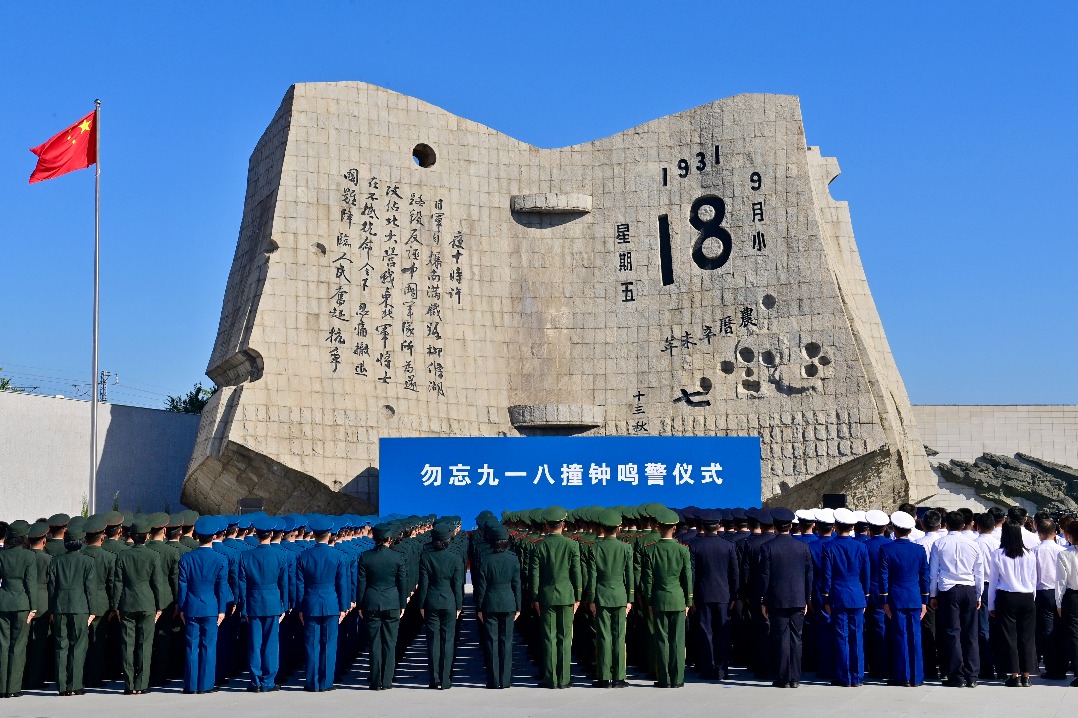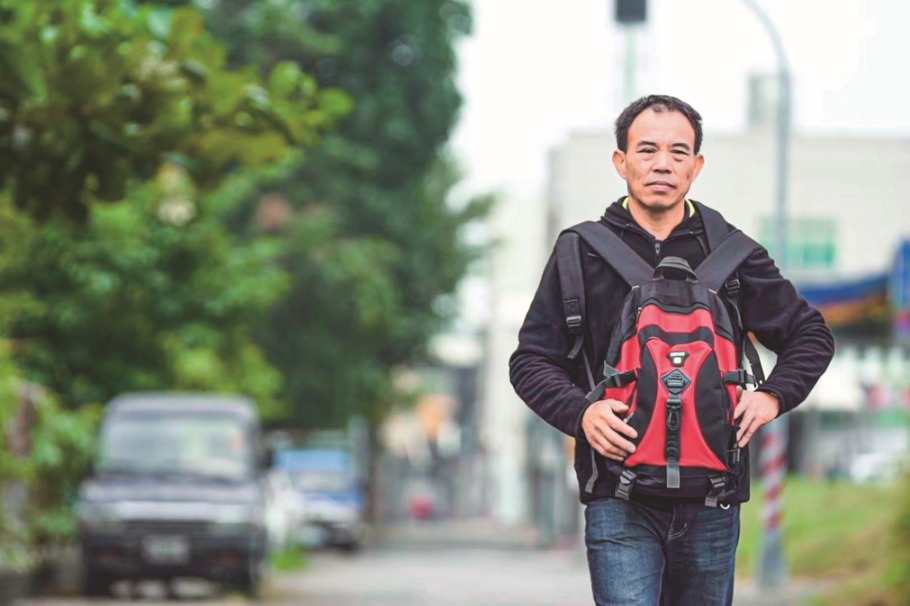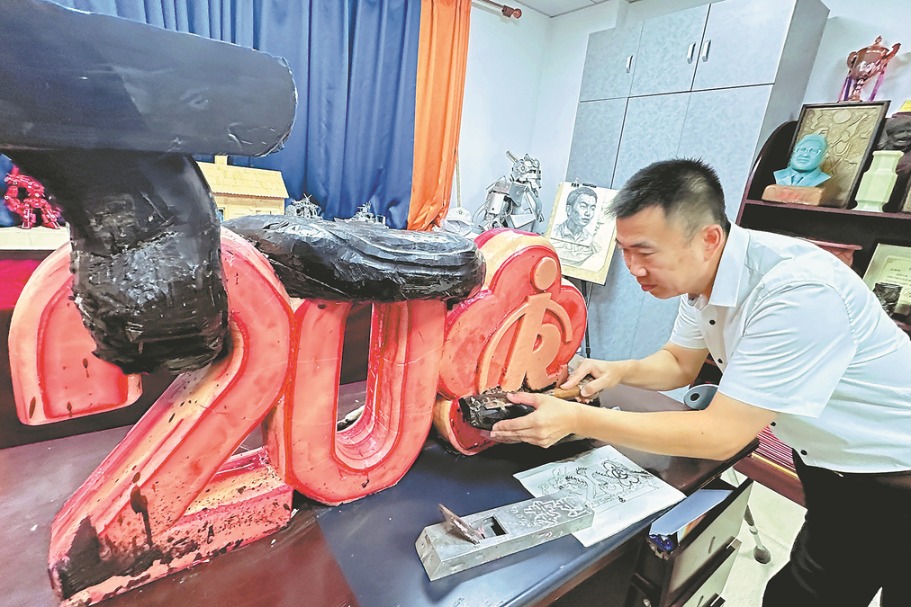Nucleic acid tests central to strategy
Resources sufficient to meet needs of 'dynamic zero-COVID-19' policy


China's widespread use of nucleic acid tests for COVID-19, rather than the faster but less accurate antigen tests extensively adopted overseas, aligns well with its disease control strategy and current testing capacity, experts have said.
To deal with the emergence of new variants, the nation is also developing additional testing tools and regimes to enhance efficiency.
A nucleic acid test detects genetic traces of the novel coronavirus in samples and requires a series of lab procedures. Because of its precision, it is widely regarded by the global community as the "gold standard" for identifying infections.
In China, from mass testing campaigns aimed at eliminating fresh outbreaks to proof of negative COVID-19 results required for cross-regional movement, nucleic acid tests have served as the ultimate bar, according to health officials.
The country's choice has put it at odds with a number of others, including the United Kingdom, Australia and the United States, which rely heavily on self-administered antigen tests that look for proteins on the surface of the virus.
Last month, the US announced that it plans to purchase one billion at-home, rapid COVID-19 tests and distribute them for free.
"Compared to nucleic acid tests, antigen tests have several advantages such as being convenient, fast and cheap, which makes it easier for the general public to conduct tests at home," Lu Hongzhou, president of the Third People's Hospital of Shenzhen, said in an interview with China News Service.
However, he said antigen tests are less sensitive for samples with a low viral load, which increases the risk of rendering false-negative results and missing positive cases.
"In some foreign regions, because of constraints on their nucleic acid testing supplies and their management policies for confirmed patients-which only require self-isolation at home-antigen tests can serve as a great, additional measure for virus-control work," he said.
"In China, though, as we are enforcing the 'dynamic zero-COVID-19' policy and we have sufficient nucleic acid testing resources, there is currently no need to widely promote antigen tests."
The dynamic-zero policy is designed to stop any new outbreak from spreading further, instead of aiming for zero cases.
Mass nucleic acid testing is considered one of the pillars underpinning China's virus control approach. By finding every hidden infection in communities and placing them in centralized quarantine, China has successfully stamped out local infection clusters as fast as possible.
Lu said the rampage of the virus overseas has made it difficult for other countries to accumulate sufficient manpower and supplies to catch up with nucleic acid testing demands.
With its relatively stable epidemic situation, China's testing capacity has remained "pretty strong", he said.
Guo Yanhong, an official with the National Health Commission's medical administration bureau, said China is capable of testing nearly 30 million samples a day, up from 16 million a year ago.
She attributed the increase to ramped-up efforts among local hospitals, disease control centers and third-party institutions. "When a new outbreak occurs, we have also striven to channel resources from other regions to areas hit by new infections," she added.
Chinese scientists and officials are also exploring new methods to increase the speed of mass testing.
The commission said on Jan 17 that China will begin implementing a pool testing regime that mixes 20 samples in one batch. Previously, five or 10 samples were mixed in one group to speed up testing.
"This method can greatly improve testing efficacy and is more suitable for large-scale screening of a population," the commission said.
Chinese researchers have also developed a new COVID-19 test that can provide results in less than four minutes, according to a study published in the journal Nature Biomedical Engineering on Feb 7.
The new tool is capable of detecting the presence of the virus' genetic material in the form of electric signals.
"It offers rapid detection of SARS-CoV-2 nucleic acids, easy operation, high sensitivity and specificity, and portability," the research team from Fudan University in Shanghai said in the study.
In some special circumstances, Chinese authorities have begun accepting the use of rapid antigen tests for those such as crew members of ships engaged in international voyages.
The Ministry of Transport said in a notice released late last month that the entire crew of such ships should receive a COVID-19 test taken within 48 hours before leaving the last port overseas and docking in China for crew change.
It said that rapid antigen tests can be used when nucleic acid tests-the preferred method-are unavailable.
- Chinese engineers design innovative robot that takes off like a bird
- Co-build mechanism for coexistence
- Shenyang commemorates 94th anniv. of Sept 18 Incident
- Taiwan compatriots' joint resistance
- Marintec China 2025 to spotlight transition to eco-smart shipbuilding
- China's contribution to WWII victory under-valued: war historian





































